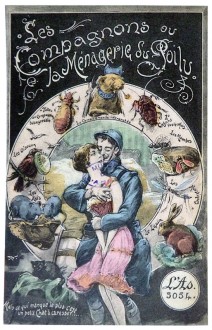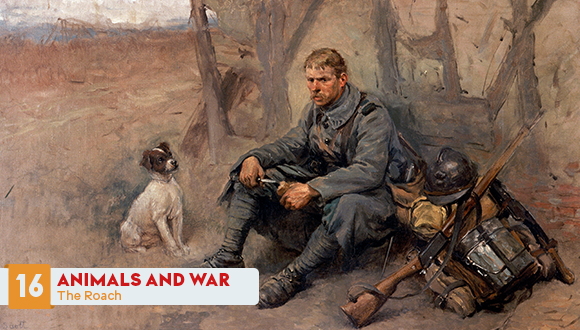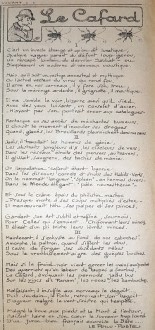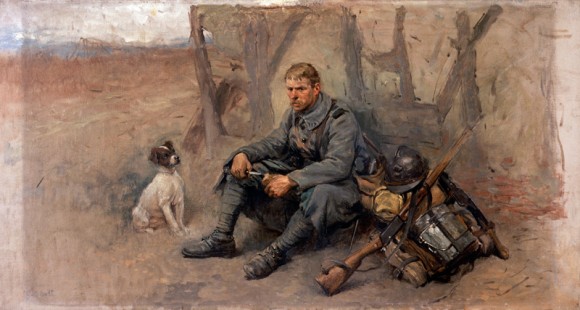
Les Compagnons ou la Ménagerie du Poilu (Pets or the Poilu’s Menagerie). Postcard, 1914-1918. © Paris, musée de l’Armée
1916 issue n°10 of the French trench newspaper Ver luisant (“The Glow-Worm”). © Paris, musée de l’Armée
A soldier of the 117th Infantry Regiment with his dog painted by Georges Bertin Scott (1873-1942). This infantryman can count on his four-legged companion to bring him solace and chase the blues away. © Paris, musée de l’Armée, dist. RMN-GP / Christian Moutarde
The Roach
A Pest in the Poilus’ Menagerie
Roaches are omnivores that attack food supplies and litter left behind by the soldiers. Although, only 1% of the listed species are known to transmit infectious agents to man, their sole presence is a real nuisance to the soldiers trying to enjoy a moment of rest and recreation. During the Great War, unhygienic circumstances in the trenches attracted an abundant and diverse fauna, making life in the trenches unbearable. On the front lines, the soldiers were forced to share their tight living quarters filled with stagnant water and their food supplies with fleas, lice, rats and roaches.
The “Anti Roach” of the Trenches
In the French language, cafard (roach) corresponds to a slang expression used by the military referring to the spleen, a connotation of strong lassitude. During the Great War, this term became very popular and its meaning broadened to include sadness, nostalgia, deep dismay and even a state of increasing depression. The dreadful living conditions in the trenches imposed upon men who for most of them had seldom been away from home, led to a feeling of discouragement which the soldier could not share with his family because of letter censorship on the front line in order to maintain civilian morale on the Homefront. To beat their gloomy state of mind, soldiers started editing trench newspapers named after the cockroach such as: L’Anti-Cafard (The Anti-Roach), Le Cafard enchaîné (The Chained Roach) or Le Cafard muselé (The Muzzled Roach). In their articles, the Poilus fended off the roach with a hearty dose of derision: “But on the other hand, we must carefully guard ourselves from the cockroach, this particular and eminently contagious disease of the occupants of the trenches. To fight against this affection, there is only one remedy laughter, laughter that dilates the spleen, shakes the belly, stirs the guts and defeats neurasthenia”.




Ajouter un commentaire